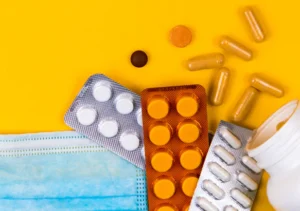On December 10, the Department of Justice (DOJ) announced the latest clinical trial fraud enforcement success with the conviction of two chief executives for lying to investors about the supposed promise of an investigational drug called leronlimab their companies were promoting to treat HIV and COVID-19. It follows two recent Securities and Exchange (SEC) actions against biopharma companies and their executives for engaging in similar misbehavior in falsely promoting the ultimate marketability of their developmental drugs.
The most recent action involved Washington-based biotechnology company CytoDyn Inc. and Maryland-based contract research organization Amarex Clinical Research, and their CEOs Nader Pourhassan and Kazem Kazempour. Amarex conducted Cytodyn’s leronlimab clinical trials and represented the company before the FDA in attempting to secure the necessary regulatory approvals. A federal jury just convicted the two executives for making false and misleading statements about the timeline and status of CytoDyn’s regulatory submissions to the FDA regarding leronlimab.
Specifically, they falsely stated the drug had been submitted for approval to treat HIV when in fact the FDA application was incomplete and they knew the agency would refuse to review it. Immediately after the announcement, Pourhassan sold more than 4.8 million shares of Cytodyn. At the same time, Pourhassan misrepresented the status of CytoDyn’s investigation and development of leronlimab as a potential treatment for COVID-19, knowing the drug’s clinical studies had failed and the FDA had expressed concerns the submitted data was misleading.
CytoDyn raised approximately $300 million from investors during the scheme, of which more than $22 million was paid to Amarex. In addition, Pourhassan received $4.4 million and Kazempour received more than $340,000 from their sales of CytoDyn stock.
In announcing the convictions, DOJ Criminal Chief Nicole Argentieri stressed the government’s commitment to go after this kind of securities fraud, especially when it involves public health:
“The defendants lied to investors and the public — including during the height of the COVID-19 pandemic — about a drug that purportedly treated HIV and COVID-19 in order to artificially inflate CytoDyn’s stock price. The Justice Department is committed to protecting the investing public from criminals who would exploit public health crises for personal profit.”
Robert Iwanicki of the FDA Office of Criminal Investigations echoed this strong sentiment, noting the convictions “demonstrate that those who make misleading statements about clinical trial results to the public . . . will be held accountable for their actions,” and how the agency will continue “to bring to justice those who place profits above public health.”
The CytoDyn matter is just the latest example of the government’s stepped-up efforts to go after clinical trial fraud. Just last week, the SEC settled charges against Kiromic BioPharma and the company’s former CEO and CFO for failing to disclose to investors the FDA’s clinical hold on Kiromic’s two lead cancer-fighting drug candidates. Instead of coming clean on the inherent delay and uncertainty of FDA approvals following a clinical hold, the company pretended the approval process was progressing smoothly in its SEC filings, investor roadshow calls, and public due diligence calls.
The SEC in September similarly came down against Cassava Sciences, Inc. and its CEO and two SVPs for allegedly misrepresenting the Phase 2 clinical trial results for the company’s purported therapeutic treatment of Alzheimer’s disease. Specifically, Cassava claimed the Phase 2 results showed significant memory improvement of the patients involved in the trial but failed to disclose those results were not based on the full set of patient data but on a cherry-picked subset of the data collected from an unblinded review of the results.
In all this, the government has made it very clear it will not tolerate clinical trial fraud and is willing to go after both pharmaceutical companies and their key executives for misleading investors about the efficacy, safety, or likelihood of FDA approval for their drugs. The most common area where this misconduct seems to be occurring is with start-up biopharma companies raising money based on the promise the drugs or products they are developing will be future blockbusters.
The government often relies on company insiders to bring this type of fraud to light. Under the SEC Whistleblower Program, individuals who provide the agency with information that ultimately leads to a successful enforcement action may be entitled to up to 30% of the government’s recovery. We have no indication whether whistleblowers worked with the SEC or DOJ in any of these clinical trial fraud matters because they strictly maintain the confidentiality of their whistleblowers. However, given the strength of the SEC program and the inherent difficulty of discovering this type of fraud from outside the company, it is certainly possible whistleblowers were involved.
So if you have any information concerning potential clinical trial fraud and would like to learn more about what it means to be a whistleblower under the SEC program, please do not hesitate to contact us. We will connect you with an experienced member of the Constantine Cannon Whistleblower Team for a free and confidential consult.
Read Another Clinical Trial Fraud Success for Government Enforcement: Bring on the Clinical Trial Fraud, Whistleblowers at constantinecannon.com






Leave A Comment